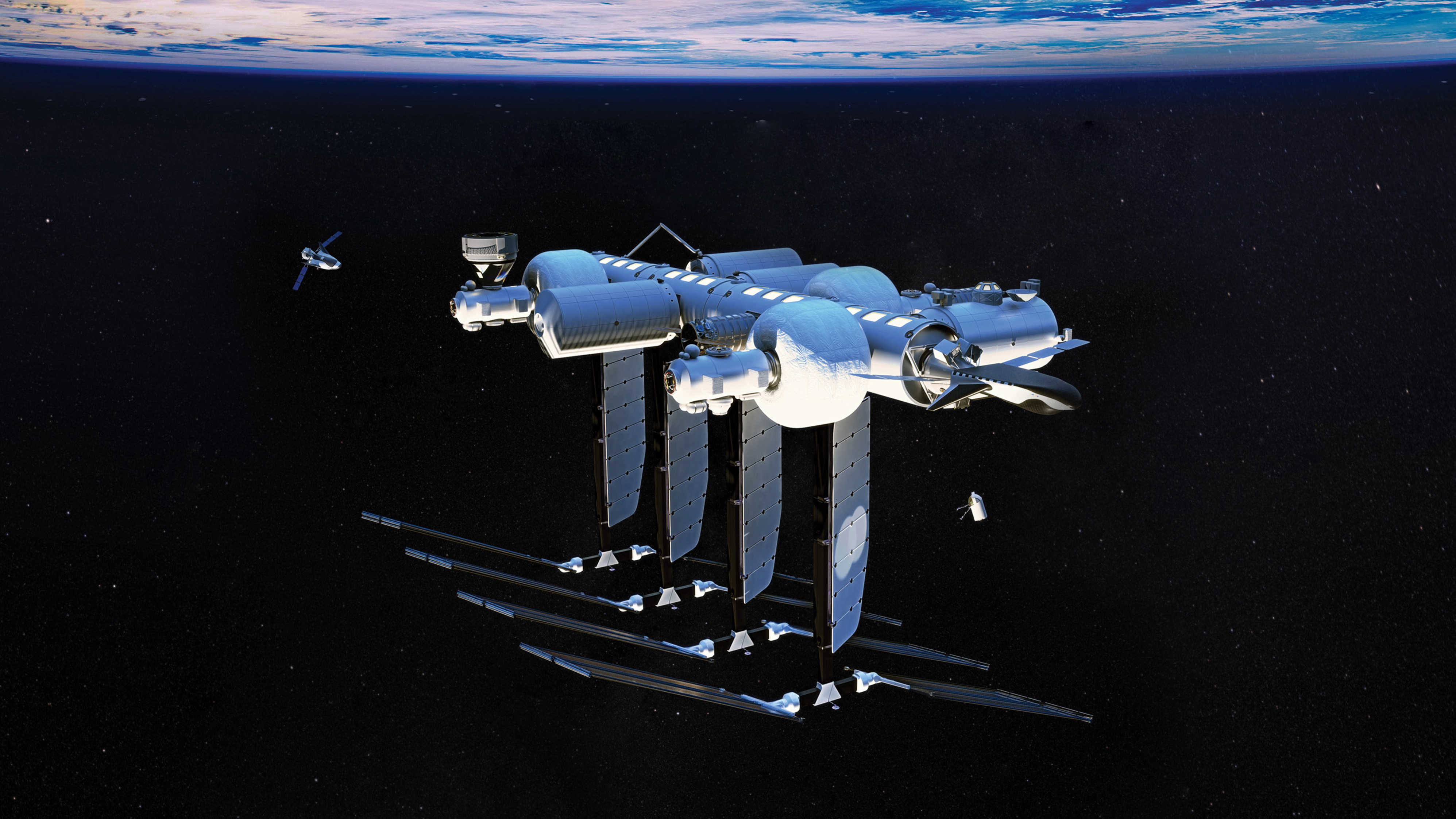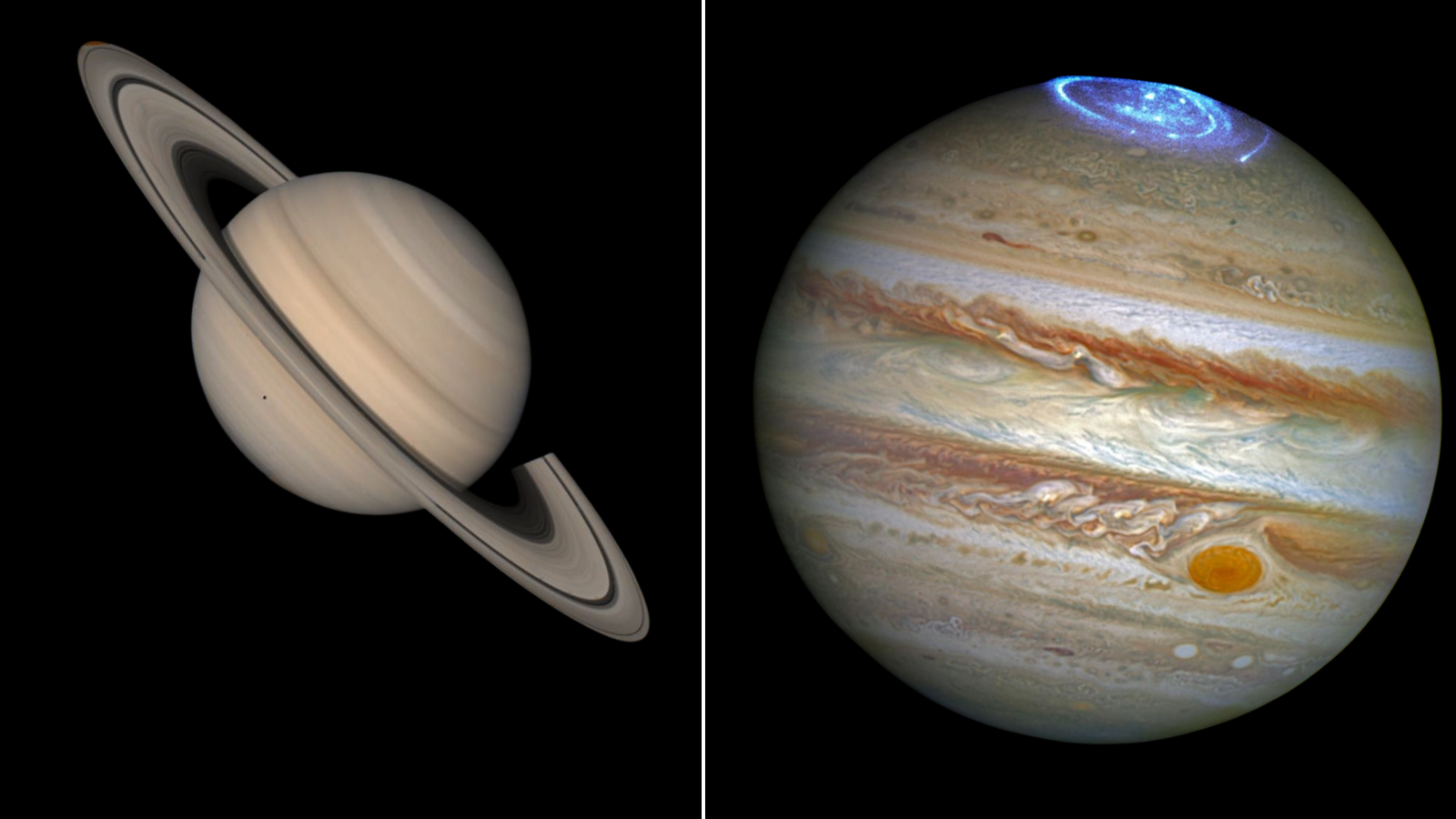Bang! Inflatable space station module blows apart in explosive test (video)
It's the fifth such destructive trial for Sierra Space's LIFE module.
That's now five space station prototypes blown up for science's sake.
The Colorado company Sierra Space, which is creating an inflatable module for an International Space Station (ISS) successor, deliberately exploded a new design on Aug. 17 that included a metal plate. (In this case, the plate was a cheaper stand-in for a window, but metal can also be used to simulate robotic attachments or other items.)
These "burst tests," conducted with "softgoods" built by Delaware-based company ILC Dover, are essential to test the limits of each one-third-scale module before the design flies in space, Sierra Space officials emphasized in a press release issued on Wednesday (Sept. 20). The softgoods are sewn and woven fabrics, mostly Vectran, that become rigid when inflated.
Sierra aims to have the module ready in 2030 for the Orbital Reef space station led by Jeff Bezos' Blue Origin, which has received early-stage NASA funding. Sierra also plans to provide a ship capable of carrying cargo and crew, called Dream Chaser, which has undergone a few flight tests over the years.
Related: NASA looks to private outposts to build on International Space Station's legacy
"This is a phenomenal achievement," Shawn Buckley, senior director of engineering and product evolution director for Sierra Space Destinations, said in the statement. Last month's test, he said, "provides the necessary engineering foundation" to do full-scale tests of the module, called LIFE (Large Integrated Flexible Environment).
The "ultimate burst pressure" (UBP) test results showed a 33% margin over the certification standard for a full-scale module, which Sierra Space officials said is a nearly 20% improvement over previous designs.
Breaking space news, the latest updates on rocket launches, skywatching events and more!
Sierra previously passed a quartet of tests on LIFE prototypes. Two other UBP tests were performed in July and November 2022; both kept boosting the pressure in test modules until they exploded. Then two creep tests, in which modules had to spend long periods of time at higher-than-usual pressures, were completed in December 2022 and February 2023.
All of these tests were performed at NASA's Marshall Space Flight Center in Alabama; Sierra also recently signed a reimbursable Space Act Agreement with that center for more LIFE work.
The ISS has been working in space since 1998, and remains in excellent health. That said, the station's international partners and NASA have mainly agreed to operate the orbiting complex until 2030. (Russia, for now, is committing only to 2028; while space station relations are normal with that partner, its internationally condemned war in Ukraine has severed most of its other partnerships.)
NASA is also laying the groundwork for future space stations to replace the longstanding research facility. These would be commercial facilities, with NASA participation and funding. In 2021, the agency granted funding to three consortiums (including Blue Origin's) to receive development assistance for that effort.
Additionally, Houston-based company Axiom Space has a separate agreement to create its own space station modules to attach to the ISS starting as soon as 2026. The set would eventually detach into a free-flying space station.
In recent months, NASA officials have said they are doing their best to minimize any gap in research availability between the ISS and the new space stations. Given that the agency wants to have a two-year transition, this would mean that at least one of the new stations would have to be open around 2028, at least under the current timeline. The White House Office of Science and Technology Policy issued a strategy in March of this year with a proposed plan for the transition.

Elizabeth Howell (she/her), Ph.D., was a staff writer in the spaceflight channel between 2022 and 2024 specializing in Canadian space news. She was contributing writer for Space.com for 10 years from 2012 to 2024. Elizabeth's reporting includes multiple exclusives with the White House, leading world coverage about a lost-and-found space tomato on the International Space Station, witnessing five human spaceflight launches on two continents, flying parabolic, working inside a spacesuit, and participating in a simulated Mars mission. Her latest book, "Why Am I Taller?" (ECW Press, 2022) is co-written with astronaut Dave Williams.

